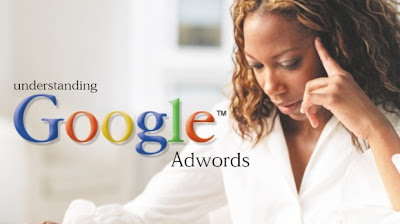Reuters
Europe's highest court ruled Google Inc did not infringe trademark law by selling keywords to trigger ads after Louis Vuitton and others said the practice undermined their brands.
The European Court of Justice (ECJ) said on Tuesday advertisers were free to buy keywords identical to trademarks of rivals as long as consumers were not confused on the provenance of goods and services by the way ads were displayed online.
The European Court of Justice (ECJ) said on Tuesday advertisers were free to buy keywords identical to trademarks of rivals as long as consumers were not confused on the provenance of goods and services by the way ads were displayed online.
The court said that in cases where ads could confuse consumers, brand owners should invoke their rights against the advertisers concerned, not against Google -- unless Google failed to act on a complaint or actively manipulated keywords.
The ruling validates the AdWords paid-search business at the core of Google's $23 billion online advertising operations, as well as of competitors such as Yahoo! Inc, and gives brand owners a way to prevent wrongful use of their trademarks.
"It's a good decision in large parts," said Fabian Ziegenaus, an intellectual property lawyer at Linklaters.
"It does not forbid Google per se to sell trademark keywords, so the business model is not at stake, and brand owners are also protected through the decision."
Advertisers often buy brand names of their competitors as keywords to trigger their own ads. Google says the practice is in the interests of consumers, who do not want their search results to be limited to a single brand.
Brand owners can also bid for their own brand names as keywords and the order in which sponsored links are displayed online is determined mainly through this auction process.
Google used to block advertisers from buying others' brand names as keywords but changed its policy in North America in 2004 and four years later extended that to Britain and Ireland.
It says it will honor valid complaints from brand owners and prevent their rivals from using a trademarked keyword in their ad text.
VICTORY CLAIMS
Both Google and LVMH, the world's biggest luxury-goods group, claimed the court's decision as a victory for themselves and their attorneys.
"Trademarks ... are key for companies to market and advertise their products and services. But trademark rights are not absolute," wrote Google's senior litigation counsel for Europe, Harjinder S. Obhi (googlepolicyeurope.blogspot.com).
"We believe that user interest is best served by maximizing the choice of keywords, ensuring relevant and informative advertising for a wide variety of different contexts."
LVMH Vice Chairman Pierre Gode told Reuters: "We are very happy with the decision. We consider the decision is very important as the liability of advertisers is well established."
LVHM shares rose 1.1 percent to 87.74 euros by 1131 GMT (7:31 a.m. EDT).
The summary of the court judgment did not explicitly address the issue of counterfeit goods, but it did offer more clarity than expected on the misuse of trademarks in search results displayed to consumers.
"If the trademarks are actually used in the results that are shown to users and the advertiser does not own the trademark, that is likely to be deemed infringement," said Thomas Vinje, a partner at Clifford Chance specializing in EU and IP law.
"That would seem to defeat counterfeiters ... that would be to the advantage of the trademark owners," he said.
The European Brands Association, which represents 1,800 brand companies in 22 countries, said: "By confirming trademark rights online and holding sellers of keywords liable for illicit material, such as counterfeits, this ruling seems positive."
The ECJ said the matter of whether consumers were likely to be confused by the way search results were displayed was a matter for national European courts to decide case by case.
LVMH scored a victory last month when a Paris tribunal found eBay Inc guilty of misleading consumers by using misspelt versions of its brand as search engine keywords to redirect users to eBay website links.
Several cases brought by brand owners are pending against advertisers at the ECJ, the first of which will be ruled on this week. Google also faces eight cases in the United States over the sale of trademarked keywords and Google keyword search technology.

